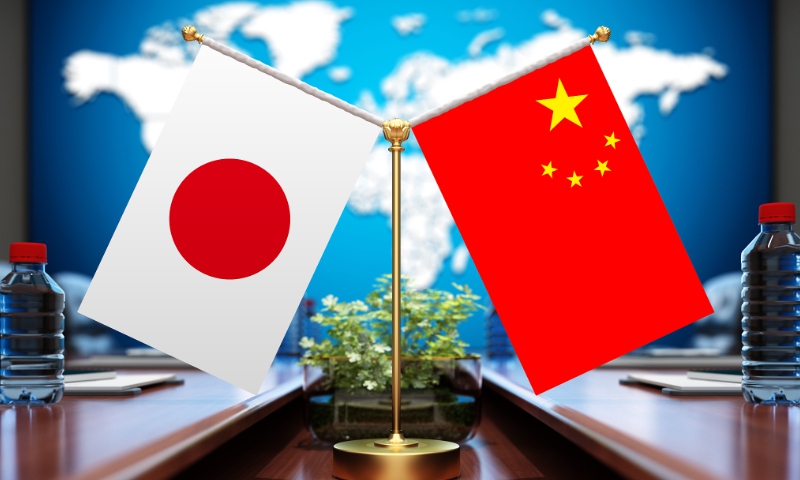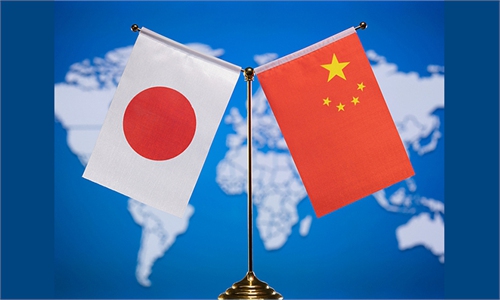Japanese business community to play positive role in facilitating win-win bilateral cooperation: Premier Li

China Japan Photo: VCG
Chinese Premier Li Qiang expressed his hope that the Japanese business community will play a positive role in facilitating win-win bilateral cooperation when he met in Beijing with a Japanese economic delegation that is visiting China. Li also urged both China and Japan to work together to bring bilateral relations back to the sound development track.
Chinese analysts said that the visit has given out a positive signal on Japanese businesses' desire to deepen cooperation with the world's second-largest economy, despite geopolitical noise and other disruptions. The goodwill gesture will also lay a foundation for stabilizing overall China-Japan relations, which are now at a crucial stage of linking the past and future, they said.
Li met with the Japanese economic delegation led by Masakazu Tokura, chairman of the Japan Business Federation, head of the Japan-China Economic Association Kosei Shindo, and Japan Chamber of Commerce and Industry chairman Ken Kobayashi in the Great Hall of the People. A total of 200 representatives of Japanese companies participated in the meeting.
The visit, which kicked off on Tuesday and will last until Friday, is the first of its kind in four years.
During the meeting, Li pointed out that economic ties between China and Japan are deeply integrated, and bilateral economic and trade cooperation has played an important role as the "cornerstone and propeller" in bilateral relations.
Li reaffirmed China's commitment to continue opening-up and said that China welcomes companies from different countries, including Japan, to continue investing in China. He nevertheless urged Japan to provide an open, just and non-discriminatory business environment for Chinese companies operating in Japan.
According to Li, China is willing to work with the Japanese side to explore potential cooperation; continue sharing development opportunities; support companies from both countries to cooperate in areas such as tech innovation, the digital economy, green development and medicine and eldercare; jointly maintain smooth and stable supply chains, and achieve a higher level of cooperation that is complementary in advantages and mutually beneficial.
Chen Zilei, director of the Research Center for Japanese Economics at the Shanghai University of International Business and Economics, told the Global Times on Thursday that the meeting mirrors the common desire of Japanese enterprises to deepen cooperation with the Chinese side, at a time when Japan's economic recovery is hitting multiple headwinds. Closer economic ties with China will be helpful in fueling new growth drivers.
"High-level economic exchanges comprise an important part of bilateral relations. As such, the visit also carries great significance in repairing bilateral ties, which have faced geopolitical roadblocks," Chen said.
Representatives from the Japanese business community said at the meeting that China and Japan are important neighbors and they look forward to building constructive and stable Japan-China relations on the basis of strategic mutual benefit, the Xinhua News Agency reported.
Experts added that the meeting is a further reiteration of China's position on bilateral relations, and the principles set out in the four political documents between China and Japan that should never been trampled on.
During the meeting, Li called on the Japanese side to properly address major questions of principle related to history and Taiwan. While pointing out that bilateral relations are in a critical period of linking the past and future, Li urged both countries to review the original intention of normalizing relations, adhere to the right direction of peace, friendship and cooperation, and implement the political consensus of "being partners, not threats to each other" to get bilateral relations back to the sound development track.
Observers stressed that the Japanese side needs to make more concrete efforts and reverse its biased policy orientation toward China to ease bilateral relations. They urged Tokyo to immediately scrap discriminatory restrictions on exports of advanced chipmaking equipment to China.

